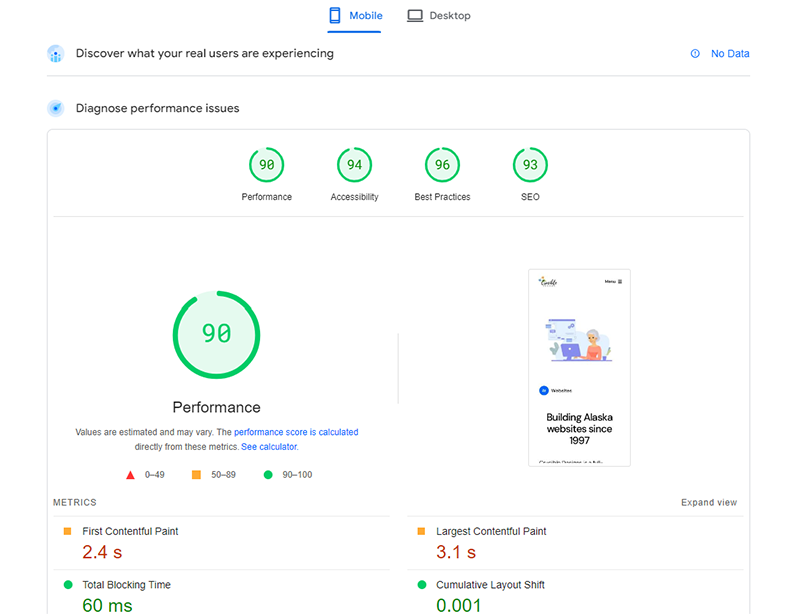
Why Your Small Business Website Should Load Faster Than Ever
As a small business owner, it’s crucial to understand that a fast website isn’t just a luxury—it’s a necessity. Let’s look at why website speed matters and how a swift online presence can significantly impact your business.
The Need for Speed: User Experience Matters
In a world where information is at our fingertips, users expect instant gratification. Studies have shown that most visitors will abandon a website if it takes more than three seconds to load. If your website is sluggish, you will lose potential customers before they even see your content.
The first impression of your business often occurs online, and a slow website can leave a negative impression on visitors. A seamless and fast-loading website contributes to a positive user experience, making visitors more likely to stay, engage, and ultimately convert into customers. A slow website, on the other hand, can frustrate users and drive them away, leading to a higher bounce rate and lost opportunities.
Search Engine Optimization (SEO) Boost
Website speed is a crucial factor in search engine rankings. Google prioritizes fast-loading websites, considering them more user-friendly. As a result, a faster website is more likely to rank higher in search engine results, increasing your online visibility and driving organic traffic to your site.
Mobile Responsiveness is Non-Negotiable
More and more users are accessing websites on mobile devices. Google takes mobile responsiveness into account when ranking websites. A fast-loading mobile site enhances user experience and contributes to higher search engine rankings, ensuring that your business remains competitive in the mobile-first era.
Conversion Rates and Revenue
Beyond user experience and search engine rankings, website speed directly impacts your bottom line. Studies have consistently shown that faster websites have higher conversion rates. Whether your goal is to sell products, generate leads, or encourage specific actions on your site, a faster website can significantly improve your conversion metrics. Ultimately, a speedier site can translate into increased revenue for your small business.
How Fast is Fast Enough?
A realistic rule of thumb is 1 – 2 seconds for a page load. 53% of mobile site visits are abandoned if pages take at most 3 seconds to load. But when it comes down to it, make sure your pages load faster than your competition!
Google looks at Largest Contentful Paint (LCP), which is how long it takes for your main content to load. It should be 2.5 seconds or less. First Input Delay (FID) measures how long it takes until a user can interact with a page. It should be of 100 milliseconds or less.
How Fast is My Website?
You can’t measure the speed of your site with a stopwatch. The most reliable tool is the one that shows the speed that Google measures. Open https://pagespeed.web.dev/, enter your website’s home page URL and click “Analyze”.

Now You Can Take Action
Google’s Page Speed Insight tool tells you what your speed is and what you need to do to fix it. Next week, we’ll look at specific actions you can take to improve your page speed score.





